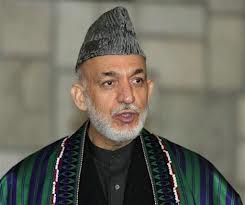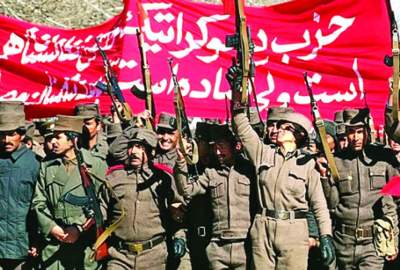Turkey has emerged as a more suitable candidate for hosting Afghanistan-Taliban peace talks than Saudi Arabia, experts agree.
“Turkey has a better chance,” said Fikret Ertan, a Middle East analyst, noting that Turkey's neutral position -- which contrasts with Saudi Arabia's unwavering support for the Taliban -- makes it more likely that reconciliation talks will be held in Turkey.
On Sunday, Afghanistan's Ministry of Foreign Affairs pointed to Turkey and Saudi Arabia as possible hosts for peace talks with the Taliban.
Hikmet Çetin, the former NATO senior civilian representative in Afghanistan, told Sunday's Zaman that Turkey would be a more reliable host for the Afghan peace talks than Saudi Arabia.
“Saudi Arabia was one of the very first countries that recognized the Taliban and this overshadows its neutrality. On the other hand, Turkey has always supported Afghan governments. Afghanistan, the United States and Pakistan can all trust Turkey on this issue,” said Çetin.
Earlier in June, the possibility of peace talks between the Afghan government and the Taliban made international headlines when the Taliban said it was opening an office in Doha, the capital of Qatar. Shortly after that announcement, however, hopes of stopping Afghanistan's 12-year war suffered a severe blow when the Afghan government reacted in outrage over the raising of the Taliban's flag over the Doha office and the use of signs proclaiming an “Islamic Emirate of Afghanistan,” the name the Taliban used during their brief rule from 1996 to 2001.
Afghan Foreign Affairs Ministry spokesperson Janan Mosazai said an office could be opened either in Turkey or in Saudi Arabia for the meetings between Afghan officials and Taliban representatives. Fazıl Ahmed Burget, a research fellow at Ankara-based think tank Center for Middle Eastern Strategic Studies (ORSAM), believes reconciliation talks will take place in Turkey -- if such a move is not blocked by a foreign power. Pointing out that the Taliban is a coalition of different groups, Burget said Turkey's contacts with these faction would strengthen the nation's position in hosting Afghanistan-Taliban peace talks.
Dr. Davood Moradian, director general of the Afghan Institute for Strategic Studies (AISS), however, has raised concerns about the possible consequences of hosting the talks in Turkey. Stressing that relations between Afghanistan and Turkey are extremely close and friendly, Moradian said that if a Taliban office were opened in İstanbul, Turkey would alienate other Afghan circles, including Afghan civil society, women's rights groups, the Taliban's political opponents and mainstream Afghans.
He also said Turkey would get no concrete results from hosting the planned talks, for “two simple reasons. … First, the Taliban's political masters are Pakistan's military establishment and they do not wish to end their support for the Taliban. They may facilitate the talks, as a kind of TV soap to be played in different locations, but not with concrete results.”
Second, he said, incumbent Afghan President Hamid Karzai's term ends in less than six months. “Neither the Taliban nor Pakistan want to make a deal with an outgoing president,” he said.
For a long time, Turkey has been assisting Afghanistan in various fields ranging from military aid to reconstruction and development. As a NATO member and contributor to the International Security Assistance Force (ISAF), Turkey has 1,036 troops deployed in Kabul.
Turkey has hosted several international conferences on the future of Afghanistan as well. In 2011, both the İstanbul Process on Regional Security and Cooperation for a Secure and Stable Afghanistan and the Islamic Cooperation for a Peaceful Future in Afghanistan took place in İstanbul, Turkey.
Moreover, Turkey maintains an intensive foreign aid program for development and reconstruction in Afghanistan through the Turkish International Cooperation and Development Agency (TİKA) and other organizations. Many civilian and military experts from Turkey have supported Afghan officials in improving health services, training the Afghan army and police, and developing agriculture.
Turkish troops are expected to stay in Afghanistan after NATO troops pull out in 2014. "We [our troops] have been in Afghanistan not because of NATO. We were in Afghanistan [even] in 1921," said Turkish Minister of Defense İsmet Yılmaz, who added that both the Afghan president and minister of defense have made it clear that they want to see Turkish soldiers in Afghanistan in the future. “The ISAF general also wants Turkish troops in [ISAF] forces after 2014,” Yılmaz said during his visit to Afghanistan in April.
“Turkey has a better chance,” said Fikret Ertan, a Middle East analyst, noting that Turkey's neutral position -- which contrasts with Saudi Arabia's unwavering support for the Taliban -- makes it more likely that reconciliation talks will be held in Turkey.
On Sunday, Afghanistan's Ministry of Foreign Affairs pointed to Turkey and Saudi Arabia as possible hosts for peace talks with the Taliban.
Hikmet Çetin, the former NATO senior civilian representative in Afghanistan, told Sunday's Zaman that Turkey would be a more reliable host for the Afghan peace talks than Saudi Arabia.
“Saudi Arabia was one of the very first countries that recognized the Taliban and this overshadows its neutrality. On the other hand, Turkey has always supported Afghan governments. Afghanistan, the United States and Pakistan can all trust Turkey on this issue,” said Çetin.
Earlier in June, the possibility of peace talks between the Afghan government and the Taliban made international headlines when the Taliban said it was opening an office in Doha, the capital of Qatar. Shortly after that announcement, however, hopes of stopping Afghanistan's 12-year war suffered a severe blow when the Afghan government reacted in outrage over the raising of the Taliban's flag over the Doha office and the use of signs proclaiming an “Islamic Emirate of Afghanistan,” the name the Taliban used during their brief rule from 1996 to 2001.
Afghan Foreign Affairs Ministry spokesperson Janan Mosazai said an office could be opened either in Turkey or in Saudi Arabia for the meetings between Afghan officials and Taliban representatives. Fazıl Ahmed Burget, a research fellow at Ankara-based think tank Center for Middle Eastern Strategic Studies (ORSAM), believes reconciliation talks will take place in Turkey -- if such a move is not blocked by a foreign power. Pointing out that the Taliban is a coalition of different groups, Burget said Turkey's contacts with these faction would strengthen the nation's position in hosting Afghanistan-Taliban peace talks.
Dr. Davood Moradian, director general of the Afghan Institute for Strategic Studies (AISS), however, has raised concerns about the possible consequences of hosting the talks in Turkey. Stressing that relations between Afghanistan and Turkey are extremely close and friendly, Moradian said that if a Taliban office were opened in İstanbul, Turkey would alienate other Afghan circles, including Afghan civil society, women's rights groups, the Taliban's political opponents and mainstream Afghans.
He also said Turkey would get no concrete results from hosting the planned talks, for “two simple reasons. … First, the Taliban's political masters are Pakistan's military establishment and they do not wish to end their support for the Taliban. They may facilitate the talks, as a kind of TV soap to be played in different locations, but not with concrete results.”
Second, he said, incumbent Afghan President Hamid Karzai's term ends in less than six months. “Neither the Taliban nor Pakistan want to make a deal with an outgoing president,” he said.
For a long time, Turkey has been assisting Afghanistan in various fields ranging from military aid to reconstruction and development. As a NATO member and contributor to the International Security Assistance Force (ISAF), Turkey has 1,036 troops deployed in Kabul.
Turkey has hosted several international conferences on the future of Afghanistan as well. In 2011, both the İstanbul Process on Regional Security and Cooperation for a Secure and Stable Afghanistan and the Islamic Cooperation for a Peaceful Future in Afghanistan took place in İstanbul, Turkey.
Moreover, Turkey maintains an intensive foreign aid program for development and reconstruction in Afghanistan through the Turkish International Cooperation and Development Agency (TİKA) and other organizations. Many civilian and military experts from Turkey have supported Afghan officials in improving health services, training the Afghan army and police, and developing agriculture.
Turkish troops are expected to stay in Afghanistan after NATO troops pull out in 2014. "We [our troops] have been in Afghanistan not because of NATO. We were in Afghanistan [even] in 1921," said Turkish Minister of Defense İsmet Yılmaz, who added that both the Afghan president and minister of defense have made it clear that they want to see Turkish soldiers in Afghanistan in the future. “The ISAF general also wants Turkish troops in [ISAF] forces after 2014,” Yılmaz said during his visit to Afghanistan in April.
Source : Afghan Voice Agency (AVA), International Service







